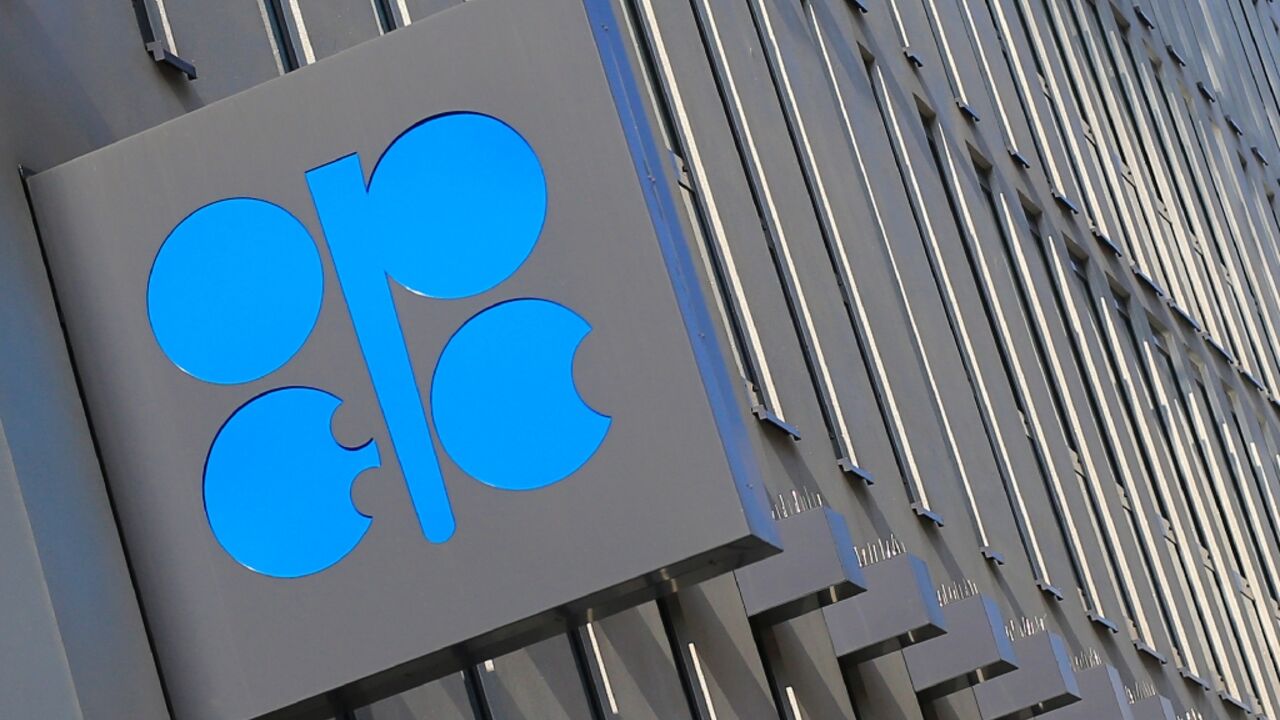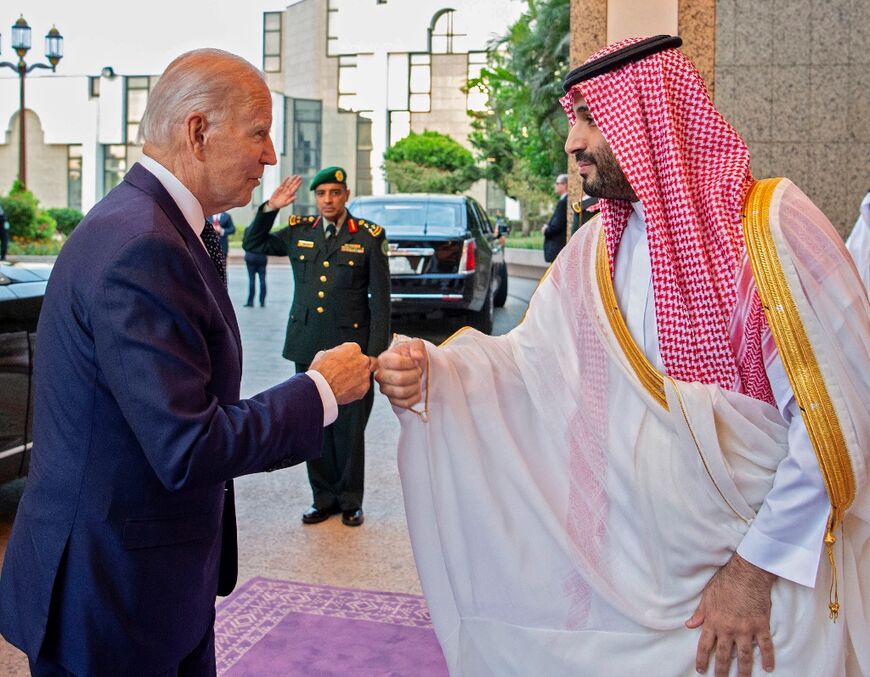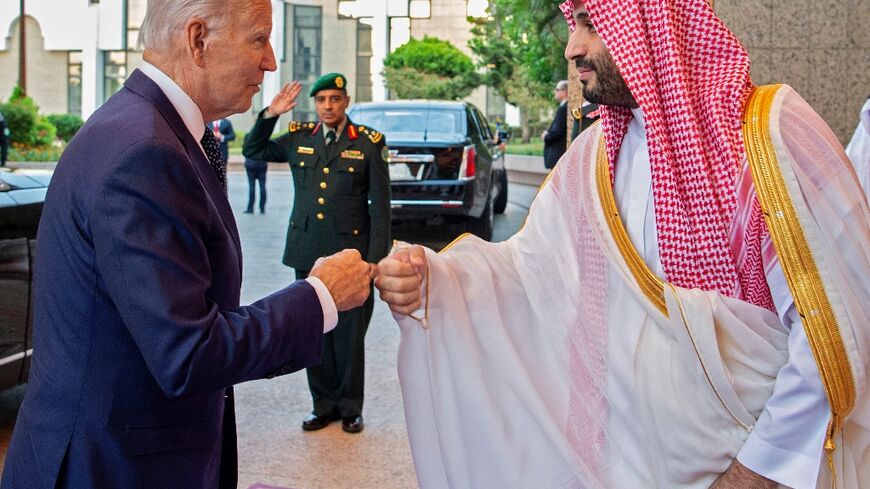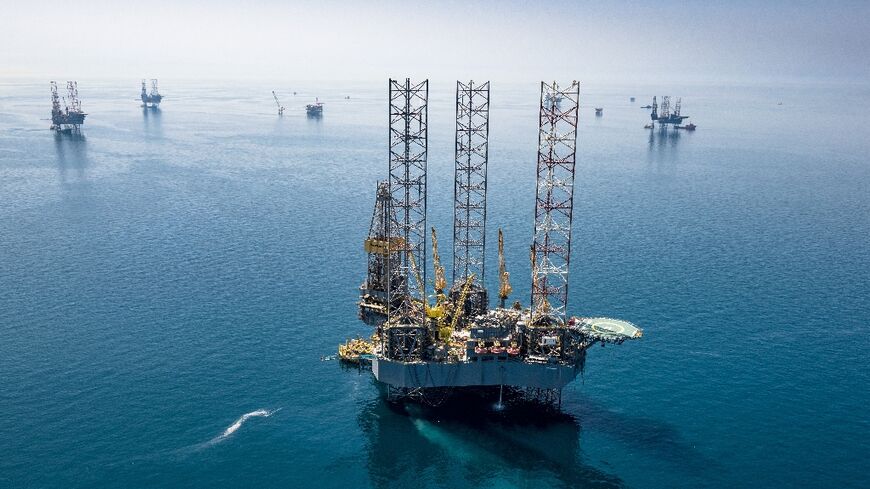OPEC+ faces output decision after Biden's Saudi trip

The OPEC+ group of oil exporters meets Wednesday to discuss another output increase, weeks after US President Joe Biden sought to persuade Saudi Arabia to boost production during a controversial visit to the country.
The White House has been pressing the oil cartel to step up production to tame prices that have surged since Russia invaded Ukraine in late February.
But the group, which is led by Saudi Arabia and Russia, has stuck to modest increases so far.
The 13-member Organization of the Petroleum Exporting Countries, along with 10 allies that include Russia, had slashed production at the height of the Covid pandemic in 2020 after a plunge in demand caused prices to sink.
The group began to raise production last year, agreeing to add 400,000 barrels per day to the market. It backed an increase of nearly 650,000 barrels per day in June, still not enough to spark a big drop in oil prices.
The alliance's output is back to pre-virus levels, but just on paper as a few members have struggled to meet their quotas.
All eyes will be on whether OPEC+ sticks to the same output policy or steps it up.
- Biden's Saudi voyage -
Biden travelled to Saudi Arabia in mid-July to meet Crown Prince Mohammed bin Salman despite his promise to make the kingdom a "pariah" in the wake of the 2018 killing of journalist Jamal Khashoggi.
Part of the reason for the controversial trip was to convince Riyadh to continue loosening the production taps to stabilise the market and curb rampant inflation.
After his meetings with Saudi leaders in mid-July, Biden said he was "doing all I can" to increase the oil supply but added that concrete results would not be seen "for another couple weeks" -- and it was unclear what those might be.
Wednesday's meeting will reveal whether his efforts were successful.
"The US administration appears to be anticipating some good news but it's hard to know whether that's based on assurances during Biden's trip or not," Craig Erlam, analyst at OANDA trading platform, told AFP.
Stephen Innes, managing partner at SPI Asset Management, said it "wouldn't be a surprise to see the Saudis announce something that Biden could tout as a win to voters at home."
- Sceptical market -
According to the London-based research institute Energy Aspects, OPEC+ could adjust its current agreement in order to keep raising crude production volumes.
However, analysts warn against expecting any drastic increases.
OPEC+ has to take into account the fact that the interests of Russia -- a key player in the alliance -- are diametrically opposed to those of Washington.
"Saudi Arabia has to walk a fine line," said Tamas Varga, analyst at PVM Energy.
Any decision on Wednesday will have to be unanimous, which may lead to a longer meeting than normal.
"Any new OPEC+ deal aimed at further ramping up supplies is likely to be met with market scepticism, considering the supply constraints already evident within the alliance," said Han Tan, chief market analyst at Exinity.
The group will decide output policy under a new secretary general, Kuwait's Haitham Al-Ghais, who took office on Monday following the death of Nigeria's Mohammed Barkindo last month.
"I look forward to working with all our Member Countries and our many partners around the world to ensure a sustainable and inclusive energy future which leaves no one behind," Al-Ghais said in a statement.





